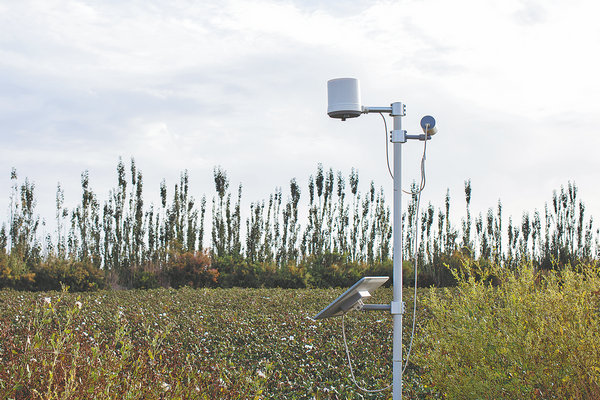Young farmers cotton on to high-tech help


The success last year attracted others to emulate the management method of Super Cotton Farm. Yang Xiaojia, now 36, who returned from Chongqing to his hometown in Yuli in 2019, took over the family's 133.3-hectare cotton field.
Yang used to work in the financial industry, and, as a beginner, he was confronted with too many questions and problems: How to assess the growth of the cotton? How to prevent and control diseases, pests, and weeds? How to supervise the labor of workers? How to effectively reduce cost, especially in irrigation?
Inspired by the Super Cotton Farm, Yang introduced its management method at the beginning of this year. Compared to previous years, the automatic irrigation system largely reduced the labor costs by 34.7 percent. The cost of electricity and water also fell by 22.3 percent, and that of pesticide by 20 percent.
Last year, 29-year-old Mo Xiaoyu, also from XAG, rented 33.3 hectares in Xinjiang to grow cotton using the methods espoused by Ai and Ling. It was her first time working on a farm. "Wherever I am, I need only a smartphone to manage my cotton field," she said in a previous interview.
At the end of October last year, cotton output in her field reached 403.6 kg per mu and the cotton fiber grew to 30 millimeters, qualified A-class.
While this method can be copied on large-scale farmland of 15.94 hectares and above to achieve more profit, Ai and Ling are marching toward the output goal of 500 kg per mu.
To promote the upgrading of Smart Cotton Farm, in recent years, Yuli has introduced smart systems that cover 16,667 hectares of cotton fields. With AI and automatic irrigation systems, cotton farmers in the county, on average, save 250 yuan per mu in irrigation and the utilization rate of fertilizer has also improved by 30 percent.
With the consumption of 30 percent less fuel oil and 36 percent less pesticide, the management method of Super Cotton Farm reduces the emission of greenhouse gases by 22 percent.
"In the future, we will conduct similar experiments on large-scale fields of corn, wheat and rice, in different places," Ai says.




































